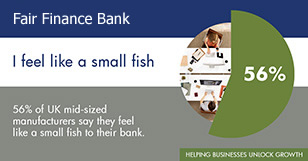
The aerospace industry is important to the UK economy. In 2017, companies in the sector accounted for some £91.7bn in turnover – or 3.7% of UK GDP.
But what contribution does the sector make to UK imports and exports, how does this compare globally and what does the sector need to succeed?
To help answer these questions, we commissioned research with Global Trade Review, the trade and finance media company, to better understand the role of imports and exports in the UK today.
The research reveals that aerospace exports are expected to grow at 3.7% a year to 2021. This is slower than food and beverage exports but faster than the precious metals, automotive and pharmaceuticals sectors respectively (see figure one).
The data shows that aerospace exports were worth $21.5bn in 2017 and the projected growth could generate an extra $796m a year for the industry’s exports.
Figure one: the UK’s fastest growing export sectors
|
Rank |
Sector |
Growth rate a year to 2021 (%) |
Value in 2017 (US$) |
Project growth per year |
|
1 |
Food and beverage |
6.3% |
$27.2bn |
$1.7bn |
|
2 |
Aerospace |
3.7% |
$21.5bn |
$796m |
|
3 |
Precious metals |
2.3% |
$34.3bn |
$789m |
|
4 |
Automotive |
1.7% |
$54.7bn |
$930m |
|
5 |
Pharmaceuticals |
0.8% |
$32.9bn |
$263m |
|
Total |
|
|
$170.6bn |
$4.5bn |
Meanwhile, exports of the five fastest growing sectors were worth US$170.6bn last year. The projected growth means that these sectors could generate an extra US$4.5bn a year for UK exports to 2021.
Flying high
Aerospace is important to the UK economy. Aircraft alone contributed more that £30bn in UK trade and aerospace companies as a whole accounted for nearly a quarter of a million jobs in the UK.
What’s more, aerospace is already the country’s eighth largest export sector. The UK sector is also the fourth largest exporter globally after the US, France and Germany where exports are worth $136bn, $74bn and $47bn respectively.
UK aerospace imports were worth $20.1bn in 2017, giving the UK a moderate trade surplus of $1.4bn in this sector.
Looking at the sector in more detail, while the UK exports more large aircraft and helicopters than it imports, the country imports nearly twice the number of aircraft parts than its exports.
The UK imports significantly more aircraft engines and radar, radio navigational aid and radio remote control apparatus than it exports.
Looking ahead
The research shows that the sector’s performance in future is closely tied to global geopolitical developments. With the growing pressure to increase defence spending, demand for aerospace products is likely to grow.
In addition, if the uptick of the global economy continues, civilian air travel is also likely to grow. This will increase demand across the civilian aerospace sector.
The role of SMEs
Looking at the size of companies in the sector, the data shows that some 52% of businesses in the sector are SMEs. What’s more, these businesses contribute 30% of sector turnover, making them a vital part of the industry.
Smaller, more innovative companies – especially in manufacturing – play a crucial part in the UK’s foothold in global supply chains, as these aerospace businesses demonstrate.
But in order for this sector and the SMEs within it to continue to succeed, they need working capital.
It is only by providing better access to funding that we can support businesses to trade, grow and create jobs.
This article was published in ADS Advance magazine: https://www.adsadvance.co.uk/the-uk-s-second-fastest-growing-export-sector.html


